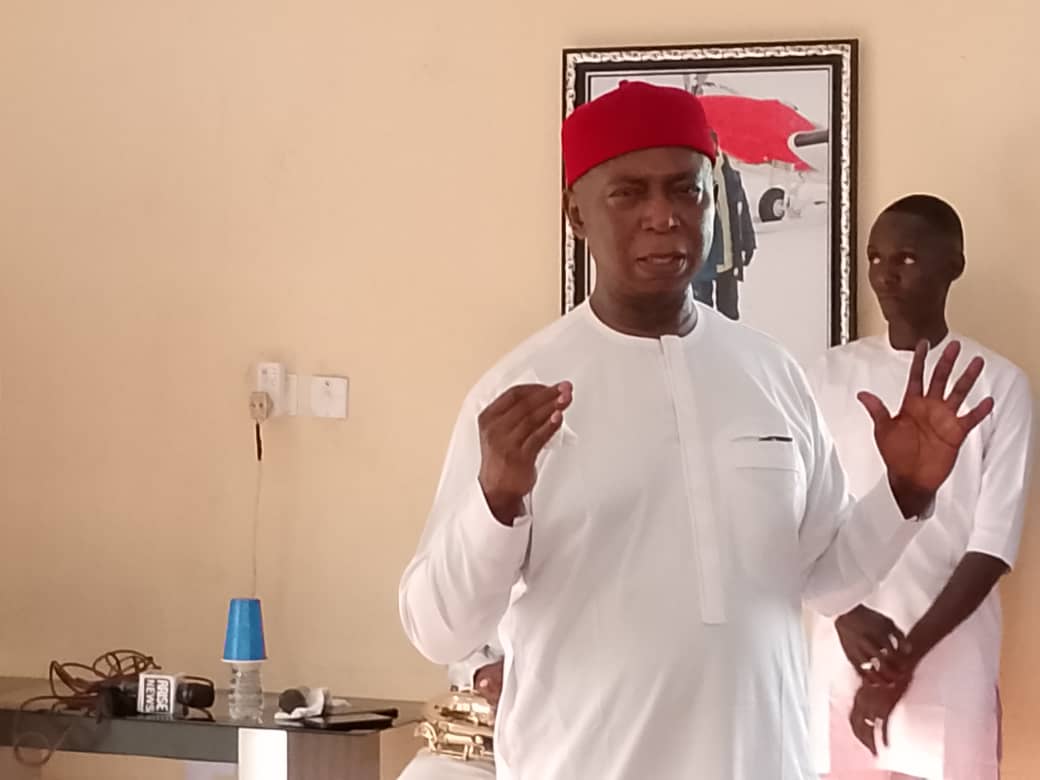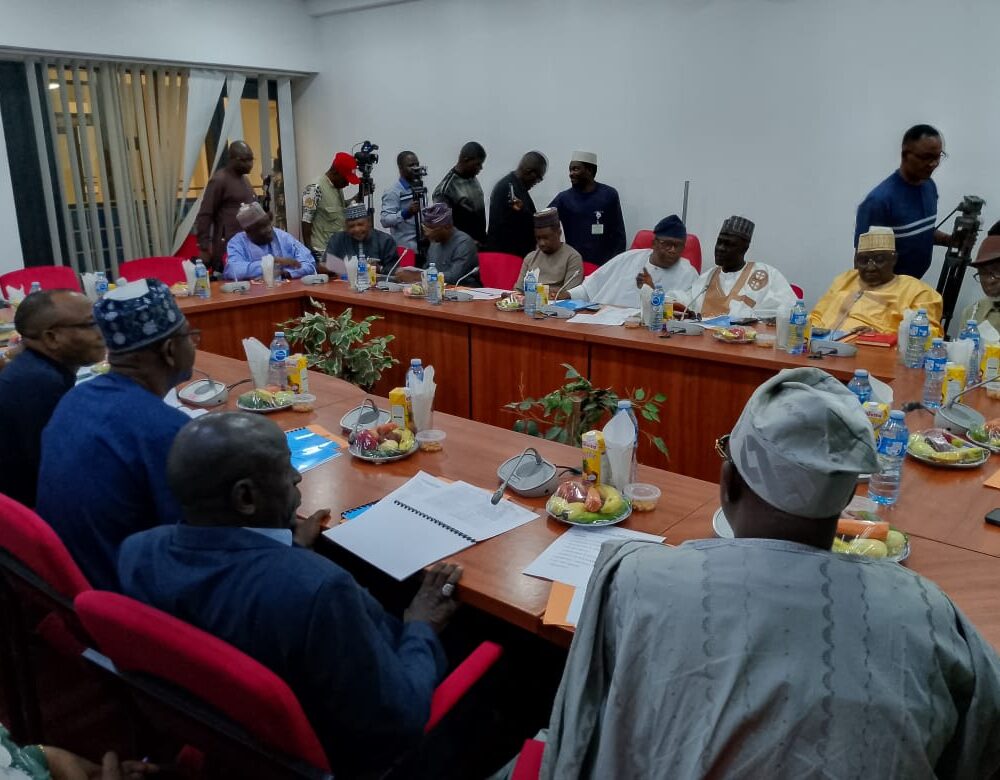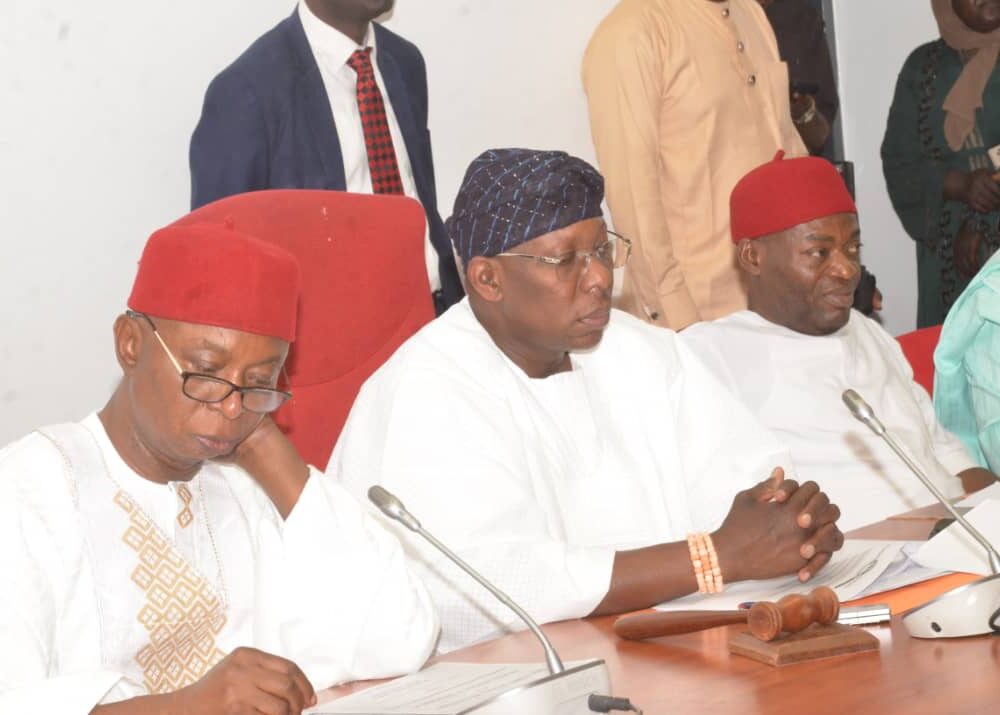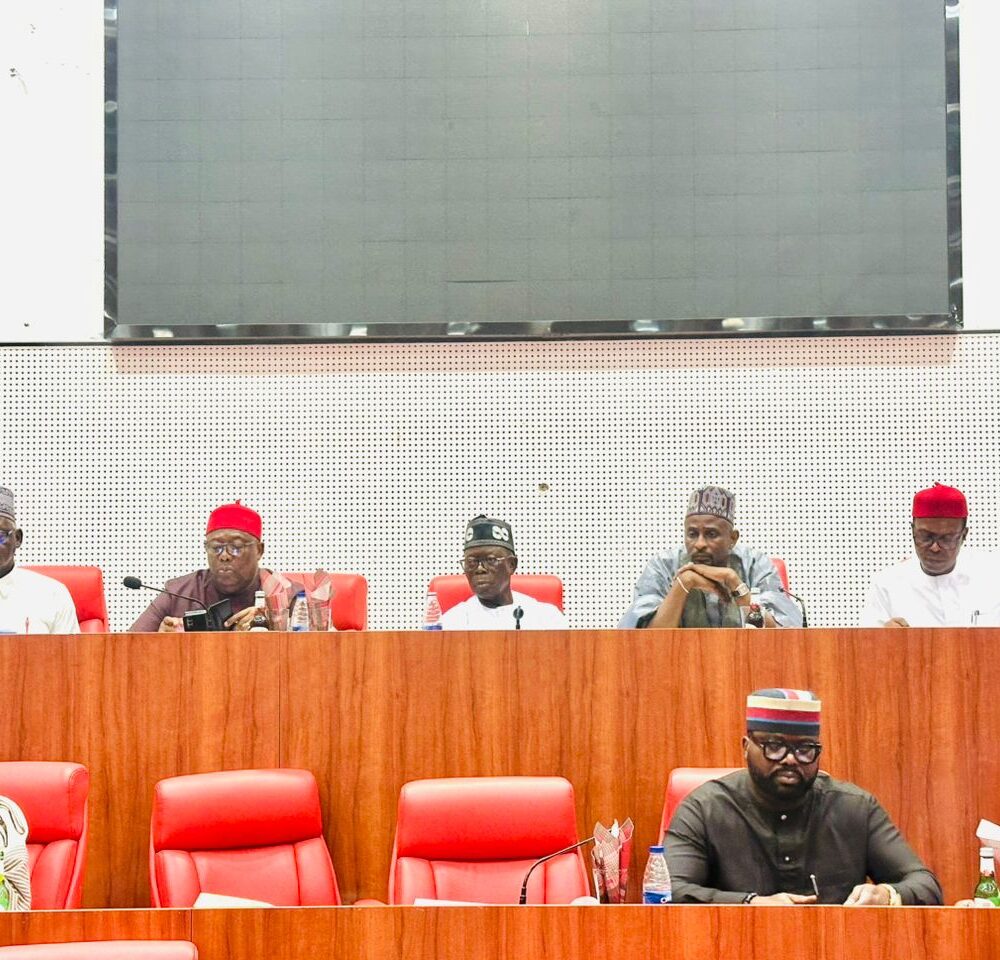James Isaac, Abuja
For Nigeria to overcome its numerous economic, social and security woes, there is need for one shop solution; this can not be achieved by giving more arms to the security agencies neither by arresting, prosecuting and sending people to various prisons.
This is the view expressed by Senator Munir Nwoko, Delta North during a media parley to critically examine five (5) of his bills which are meant to uplift the dignity and humanity of Nigerians which held at Sport Complex,Royal Court Villa, Life Camp, Abuja, on 15 November, 2024.
Giving insight on “A Bill for an Act to Alter the CBN Act, to Prohibit The Discriminatory use of Foreign Currency Payment for Remuneration and For Matters Connected Therewith”, which he sponsored, he said that, there is a relationship between the economy and crime; “economy and crime goes hand in hand , the more people are more comfortable and richer, the less crime, the more hungry and desperate they are,the more crime”, he said.
Speaking about the one shop solution, he decried that, we have gained political independence from our colonial masters but are yet to have economic independence and that have been our problem; by depending on their currency in all our monetary transactions.
“For our economy to improve, for you guys to become comfortable , so that even if they pay you Two Thousand Naira or whatever they pay you, there will be value to it, for that to happen, Naira must become a global currency”.
According to him, the solution is to make our currency global, it must be supported as it a symbol of our sovereignty, our nationality, of who we are as a people, but it has no value because we have relegated it to the background and allowed the other currencies to take center stage.
The system is faulty because we accept other people’s currency in Nigeria, where as our own currency is not recognised in their country.
When there is demand for Naira both locally and internationally, it will have value but if there is no demand, the value will depreciate,based on the law of demand and supply, he posited.





